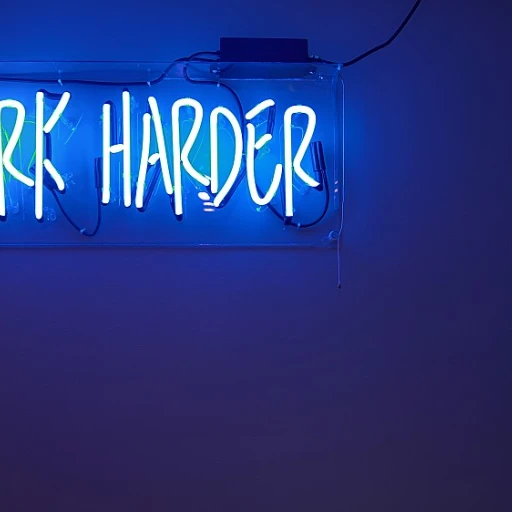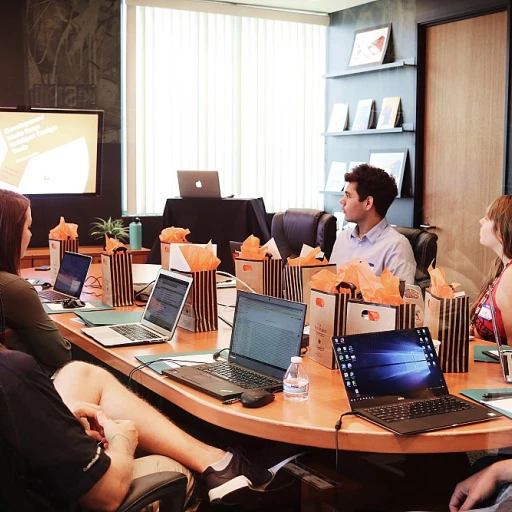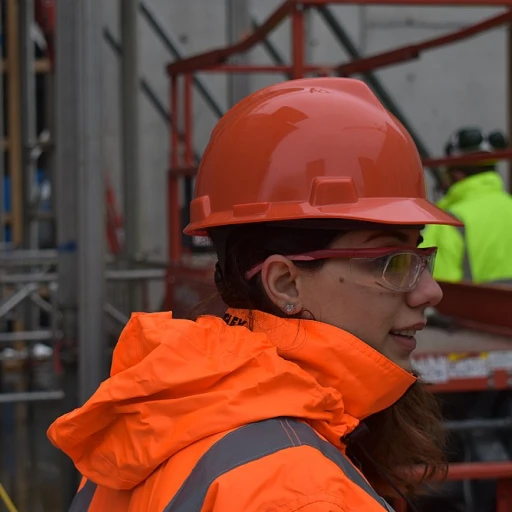
The Importance of On-Site Resident Staff in Mentoring
Critical Role in Facilitating Skill Development
On-site resident staff play a crucial role in professional mentoring, particularly within sectors like building services, engineering, and architecture across Hong Kong and the broader Asia region. Their expertise is instrumental in bridging the gap between theoretical knowledge and practical application, which is essential in professions where precision and adherence to standards such as electrical mechanical (E&M) systems or architectural designs are paramount. Hands-On Guidance and Support Resident engineers, site staff, and works supervisors bring invaluable hands-on guidance to the mentoring process. Their presence ensures that mentees are not just learning theoretically but are able to apply their new skills in real-time, high-stakes projects. By facilitating a direct link to senior professionals and experienced personnel, these staff members create a fertile learning ground for both emerging and established professionals seeking to advance in their careers.Addressing Specific Industry Needs in Hong Kong
The dynamic job market in Hong Kong SAR necessitates a robust support system for professionals navigating it, especially in fields like engineering and building services. On-site resident staff are adept at addressing these industry-specific needs, helping mentees to understand site policies, ensuring compliance with local regulations, and guiding them through the intricacies of large-scale projects managed by firms such as AECOM Asia. Furthermore, their role extends to managing the nuances of contracts, job specifications, and site workings, making them invaluable mentors in contexts where detailed comprehension and execution are critical. To ensure successful mentoring outcomes, organizations looking to cultivate competent personnel rely heavily on the integral role of these on-site staff. They serve as both the compass and the anchor, guiding mentees through practical challenges while ensuring alignment with company and industry standards. As such, recruiting experienced and well-trained professionals is a vital step in bolstering a mentoring program's success. Learn more about how to effectively recruit professional mentors to sustain and enhance this system.Challenges Faced by On-Site Resident Staff
Navigating the Challenges of On-Site Resident Staff in Mentoring Roles
On-site resident staff play a crucial role in the mentoring ecosystem, especially in regions like Hong Kong SAR and broader areas in Asia. However, the path of a resident engineer or works supervisor is not without its challenges. Understanding these obstacles can help organizations like AECOM Asia enhance their mentoring frameworks. Mentors working as resident staff on job sites, especially in architecture and building services, often face the difficulty of balancing project demands with the commitment to mentor effectively. Daily responsibilities, including site inspections and managing electrical mechanical tasks, can limit their availability to provide consistent guidance to junior staff or resident assistants. Moreover, the geographical and cultural diversity within regions such as Hong Kong can add complexity to the mentoring process. It's important for mentors to be aware of various cultural norms and implement strategies that are respectful and considerate of the SAR's unique context. Policy constraints, including strict privacy policies and contract terms, can also pose challenges. These policies could restrict information sharing between mentors and mentees, limiting open conversations that are essential in building trust and transparency. Navigating through the red tape requires not only an understanding of local and international policy but also strategic planning to ensure compliance without sacrificing mentorship quality. For a more detailed exploration of how to overcome these challenges and to effectively recruit professional mentors, you may find helpful information at project-related challenges. To ensure successful engagement, senior figures such as a clerical officer or an assistant clerical inspector should foster an environment where resident works can flourish, providing support and resources necessary for effective communication, as further elaborated in subsequent sections. This will not only alleviate challenges but also elevate the mentoring experience within complex job sites such as those supervised by AECOM Asia in Hong Kong.Effective Communication Strategies
Strategies for Clear and Effective Communication
Effective communication sits at the heart of successful mentoring relationships, especially for those involved in on-site roles. Site staff like the resident engineer, senior architect, and works supervisor must navigate the physical and relational dynamics of their job sites daily. Here are a few strategies they can employ to enhance clarity and effectiveness in communication:
- Active Listening: To address the diverse challenges on-site personnel encounter, they must prioritize active listening. This involves paying close attention to verbal cues from mentees, as well as non-verbal signals, to ensure a comprehensive understanding of their needs and concerns.
- Consistent Updates: Regular status updates are critical, especially in complex environments like those managed by AECOM Asia and other multinational firms. Site staff such as the resident works supervisor or inspector works can create consistency by scheduling routine check-ins.
- Open-Door Policy: Encouraging an open-door policy fosters a culture where mentees feel comfortable expressing thoughts and seeking guidance. This approach is highly effective and builds upon the trust and rapport established between senior staff and their less-experienced colleagues.
- Leverage of Technology: Utilizing digital communication tools, like private web platforms or emai,l can ensure streamlined processes, helping to overcome geographical or logistical barriers—often the norm in regions like Hong Kong SAR.
For more insights on how integrating effective communication strategies can significantly impact mentoring, visit the guide to professional mentoring.
Building Trust and Rapport
Fostering Connections: The Key to Successful Mentoring
The path to effective mentoring is rooted deeply in the ability to build trust and rapport. This is particularly crucial for on-site resident staff, such as those in regions like Hong Kong SAR, where cultural nuances play a significant role in relationship building. Trust serves as the foundation upon which successful professional mentoring is built, facilitating open communication and a nurturing environment conducive to growth. Building trust begins with the small, everyday interactions that occur on site. A resident engineer or works supervisor, responsible for overseeing construction and building services, should engage with both staff and mentees regularly. Consistent engagement helps to create an environment where individuals feel valued and understood, ultimately encouraging openness and honesty. In their role, site staff, such as those with AECOM Asia, often find themselves acting as intermediaries between senior management and junior staff. Here, a transparent approach is vital. Clearly communicating expectations and policies, such as privacy policies and compliance guidelines, ensures that everyone is on the same page. This clarity reduces potential misunderstandings which can erode trust. One effective method to foster trust is active listening. On-site staff, including resident site supervisors and clerks of works, should cultivate an environment where mentees feel their voices are heard. By genuinely listening and responding thoughtfully, mentors can demonstrate empathy and understanding. Through this practice, individuals like works supervisors show respect for the experiences and opinions of their mentees, reinforcing trust. Furthermore, acknowledging accomplishments and providing constructive feedback are essential practices for building rapport. Whether it’s a clerical officer or an electrical mechanical engineer on the job, recognizing their efforts fosters a sense of accomplishment and belonging. Through positive reinforcement, mentors at all levels, from assistant clerical staff to services inspectors, can create a culture of encouragement and growth. Finally, embracing diversity within the team can enhance the mentorship experience. Asia’s bustling economic hubs, including Hong Kong, bring together a myriad of cultures and professional backgrounds. By appreciating and utilizing these differences, mentors can facilitate richer interactions and greater learning opportunities for their mentees. In conclusion, building trust and rapport is essential in mentoring, demanding commitment from both mentor and mentee. With a focus on communication, transparency, and acknowledgment, on-site resident staff can foster a supportive environment where future leaders can thrive.Leveraging Technology in Mentoring
Embracing Digital Tools for Enhanced Mentoring
In the dynamic landscape of professional mentoring, leveraging technology has become indispensable. For on-site resident staff, particularly in regions like Hong Kong SAR, the integration of digital tools can significantly enhance the mentoring process. Whether you're a resident engineer or a works supervisor, technology can bridge gaps and foster more effective communication.
One of the primary benefits of technology in mentoring is the ability to maintain consistent communication. Platforms such as web-based conferencing tools and messaging apps allow site staff to connect with their mentees regardless of physical location. This is especially crucial in areas like Asia, where geographical distances can pose challenges.
Moreover, technology aids in the documentation and tracking of mentoring progress. Using digital platforms, resident works staff can easily record interactions, set goals, and monitor achievements. This not only helps in maintaining transparency but also ensures that both mentors and mentees are aligned in their objectives.
Integrating Technology with Traditional Methods
While technology offers numerous advantages, it is essential to balance it with traditional mentoring methods. Building trust and rapport, as discussed earlier, often requires face-to-face interactions. However, digital tools can complement these interactions by providing additional support and resources.
For instance, resident site staff can use online resources to share valuable insights and knowledge with their mentees. This could include access to industry reports, webinars, or even virtual tours of building services projects. By combining these resources with personal interactions, mentors can offer a more comprehensive learning experience.
Challenges and Considerations
Despite the benefits, there are challenges to consider when integrating technology into mentoring. Privacy policy concerns, especially in large organizations like AECOM Asia, must be addressed to protect sensitive information. Additionally, the digital divide can be a barrier, with some staff members having limited access to technology.
To overcome these challenges, organizations should invest in training programs that equip site staff with the necessary digital skills. This ensures that all team members, from clerical officers to senior engineers, can effectively utilize technology in their mentoring roles.
In conclusion, while technology is a powerful tool in professional mentoring, it should be used thoughtfully and in conjunction with traditional methods. By doing so, on-site resident staff can provide a more enriching and effective mentoring experience.
Measuring Success in Mentoring
Evaluating Mentorship Effectiveness
Measuring the success of mentoring programs is pivotal to ensure that both mentors and mentees achieve their desired objectives. In the vibrant settings of Hong Kong, where resident site staff work in dynamic environments like those shaped by AECOM Asia and other high-profile industries, establishing clear benchmarks becomes crucial. A comprehensive approach should involve both quantitative and qualitative assessments. Here’s how one could go about this:- Feedback and Surveys: Regular feedback from both mentees and mentors can highlight the strengths and areas for improvement in the mentoring process. Surveys are a straightforward method to capture these insights from staff like resident site engineers, works supervisors, or clerical officers.
- Progress Tracking: Maintain a record of mentees' career progression. For instance, in the fields of building services or mechanical E&M, tracking metrics like elevation in job roles or project responsibilities can serve as indicators of effective mentoring.
- Goal Achievement: Review if the set goals—whether technical skills improvement in areas like architecture and engineering, or soft skill development—are being met. This can be particularly relevant for those working under contract restraints or in fast-paced environments like Hong Kong SAR.













